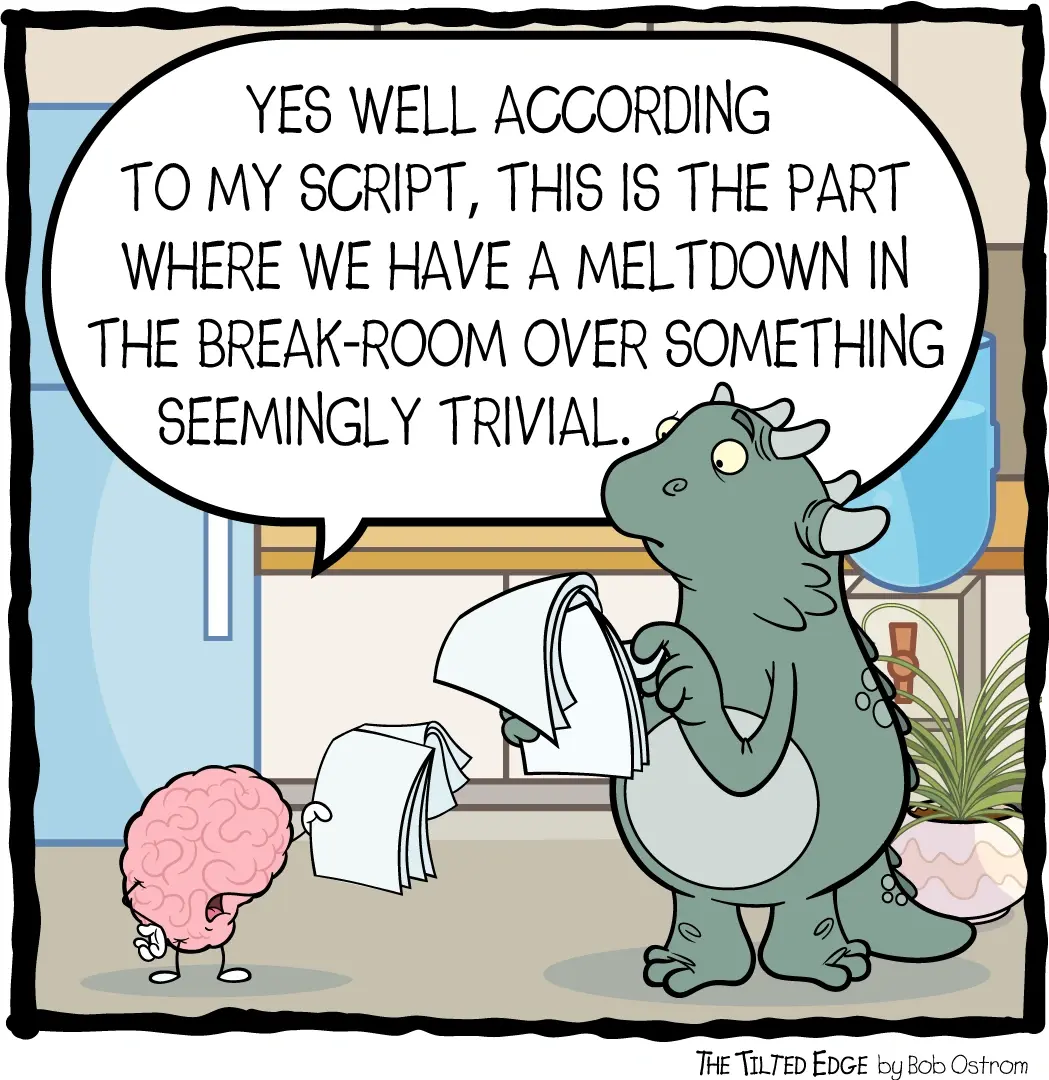

“We have to learn the art of stopping - stopping our thinking, our habit energies, our forgetfulness, the strong emotions that rule us. When an emotion rushes through us like a storm, we have no peace. … When we are mindful, touching deeply the present moment, the fruits are always understanding, acceptance, love, and the desire to relieve suffering and bring joy.” ― Thich Nhat Hanh, The Heart of the Buddha's Teaching: Transforming Suffering into Peace, Joy, and Liberation.
We are creatures of habit. Habits are automatic responses. We don’t need to think consciously about how to shower, brush our teeth or drive a car as we have done so many times. The same applies to how we make decisions or respond to people. We do what feels right, and we do it unconsciously.
So where are our habits or automatic actions and responses coming from?
Shaped by our genes and family of origin, we learned what it takes to play by the unwritten rules of that first human system and meet our needs. We also learned how we can avoid negative feelings and fears, such as the fear of being vulnerable, exposed, unworthy, unlovable, or stuck. For example, if our friend tells us at the last minute that they cannot make it to our birthday party, depending on our story, we might get triggered by this as it hits one of our deep fears of not being seen and important to someone we care about. We no longer question these emotions, as they arise automatically without thinking.
Why is this a problem?
It seems to work very well most of the time. Until our unconscious actions get us into a relationship crisis. Sometimes we might experience unhealthy relationships, toxic interactions at work, or get burned out trying to perfect things or please others at the expense of our own needs. When we feel the emotional result of unconscious actions, we are more open to exploring what might be going on. Some people blame others for their misfortune, as it might be too hard to look into the mirror and acknowledge that they had a part in it. So they carry on their lives, repeating the same unhealthy patterns, and blame the context or other people if similar problems arise. And there are others who take too much responsibility, criticizing themselves so harshly that they feel guilty and ashamed when they are not the sole contributor to the dynamic. While this might lead to new insights, the negative view of themselves can actually inhibit true growth because the cycle of ups and downs takes its toll on their energy. In many ways, we are our personality; our personality has us at its whims. We are often at the mercy of our old, often outdated stories and beliefs.
So, what is the answer?
The key to growth is to learn to separate our thoughts from our feelings and actions and do this in a mindful but self-loving way. The skill is to get out of our stories and become the observer who can examine our unconscious thought patterns and actions. We often think our thoughts are rational and objective. However, we cannot always trust our thoughts. Our early life experiences have shaped them and taught us to focus on certain parts of information that support and reinforce our original narrative. When something fits into our mindset, we accept it as right and the truth, if not, we either ignore it or tell ourselves that this is not a valid point. We are not aware of this process, as it happens unconsciously. The problem arises when we become increasingly narrow-minded in our view of ourselves and the world around us. Then we keep repeating the same unhealthy patterns because we are familiar with them. The emotions feel right, so the story must be right.
What science has taught us
As many human dynamics and neuroscience researchers have pointed out in recent years, our thoughts and mental models influence what and how we feel. This cycle continues to reinforce how we think repeatedly. We are trapped in a hamster wheel of unhealthy thinking, feeling, and acting without even knowing it. For example, if we get up in the morning and think about everything that has gone wrong the day before, we might feel unworthy and anxious. This could be a familiar feeling, so our body tells us that this feels right. This, in turn, influences our mind to continue to look for things where we messed things up. Eventually, we are so conditioned by this thought-feeling-action pattern that a negative thought alone can trigger these negative but familiar feelings without any new experiences. And so we go on, getting deeper into the misery of our lives.
Based on Dr. Joe Dispenz’s research of neuroscience and neuroplasticity, the liberating fact is that if negative thoughts can influence negative emotions, positive thoughts can create positive emotions. We are not at the mercy of our thoughts; we can decide what to focus on. And just this little switch will change the way we feel about ourselves and how we show up in the world. When we do this often enough, we can change our story and identity.


